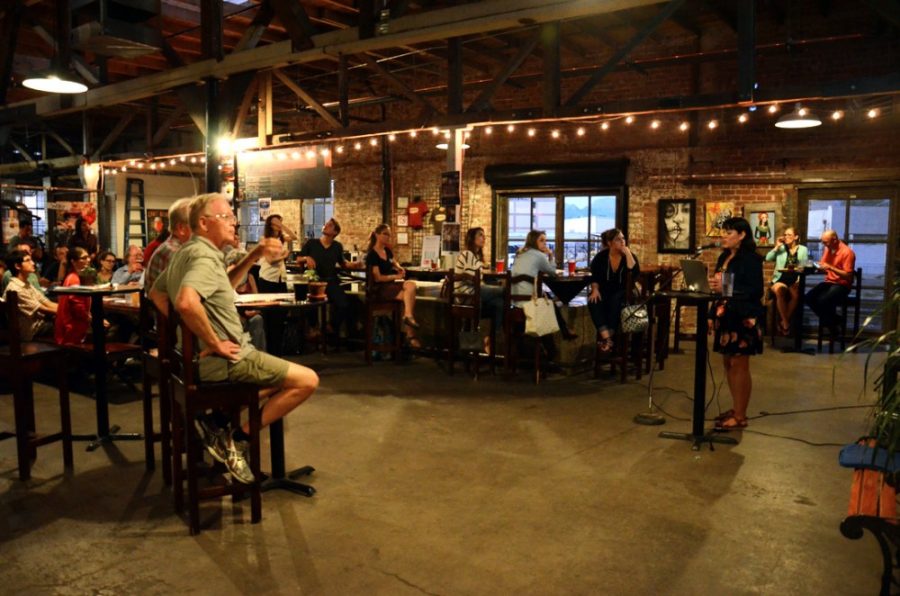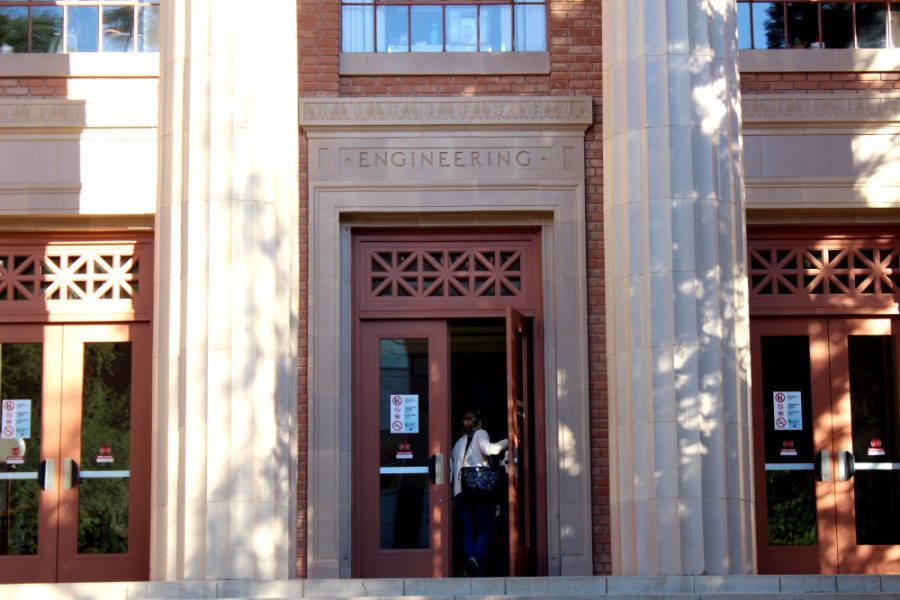The University of Arizona Science Cafés are a series of talks and discussions held in casual and fun settings across Tucson throughout the fall and spring.
At the cafés, UA scientists and graduate students share their research and connect with the Tucson community. The cafés are designed so anyone can understand them, regardless of their experience with science, and time is always left for Q&A sessions with the audience.
Topics in the 2019 UA Science Café Spring Lecture Series include the past and future told through trees, dopamine’s role in the brain and fighting climate change at a molecular level.
Erin Deely, director of recruitment and engagement for UA College of Science and UA Science Café Liaison for Science City, said many people do not accept science as fact and said she hopes public perception can change with events like the cafés.
“Science, engineering and all the STEM fields have really allowed this country to become great through innovation,” Deely said. “It blows my mind that so many people don’t believe what scientists have to say, so it’s important for people to meet the scientists behind the science and recognize the rigorous process that science goes through to stay objective and thorough.”
Besides sharing their research, presenters at the cafés take time to share their stories and how they became involved in science.
Dr. Esther Sternberg is the director of research for the UA Center for Integrative Medicine and director of the UA Institute on Place, Wellbeing, and Performance.
Sternberg also said it is important for people to learn about both the science and the scientist.
“People want to know how scientists came to do what they are doing. They want to know about scientists as a person,” Sternberg said. “Especially for kids coming up the ranks, it’s important for kids to know that we had things that inspired us to be passionate. That’s something you can really get across in an informal setting like the Science Café.”
RELATED: Researchers opened labs to public for BIO5 Open House
Borderlands Brewing Company is one of five locations that host Science Cafés. Mike Mallozzi, president of Borderlands Brewing Company and research associate at UA Animal and Comparative Biomedical Sciences, said the cafés help remove barriers between the public and science.
“Science education and communication is taught with this series of facts that you need to memorize. It’s not an effective way to communicate science,” Mallozzi said. “The Science Café is a tool that can help communicate science better.”
Mallozzi said the lack of effective communication between the science community and the public has led to a lack of understanding of science among the public.
“One of the biggest challenges our society is facing is science illiteracy or low science literacy,” Mallozzi said. “[Low] science literacy can lead to anti-vaxxers, measles outbreaks and climate change. We need to address the challenge of how to achieve a highly science-literate population.”
Sternberg said outreach to the public is important for getting out accurate information.
“It is crucial that we engage the public at all levels whether it is children, K-12, the general public or colleagues who are not in our own field,” Sternberg said. “And if we don’t engage in an interesting way, then the public will turn to other sources of information that may not have the expertise that we in our own field have.”
RELATED: Science City gives all ages a chance to see what science is all about
Not only can the community be informed at the Science Cafés, but scientists presenting can learn from them, too.
“It’s a great opportunity for scientists and researchers to learn how to communicate their science in terms that general public can understand, and that’s a gift,” Deely said. “They learn to speak to really diverse audiences versus just their colleagues and peers, which is a whole different way of communicating science. So it benefits everyone involved.”
A full list of talks for the spring UA Science Café Series can be found on the spring series brochure. The UA Science Cafés are streamed live on the UA Science Community Connections Facebook page, and past cafés can be found on its YouTube page.
Follow Marquies White on Twitter















